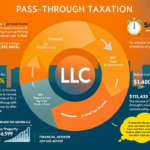Many landlords have moved their rental collection online and allow tenants to submit their payments through tenant payment portals. Portals can allow renters to easily pay rent with a credit card or debit card. The benefits of using a credit card to pay rent are numerous. There is less financial bookkeeping required, and payments appear in the landlord’s accounts quickly. It’s also much easier on tenants who can easily pay rent with a credit card. However, landlords should understand the rental chargeback process. A chargeback occurs when the owner of a bank account notifies the bank that a transaction isn’t approved.
In turn, the bank must recover the funds from the vendor. As a landlord, it can be very frustrating when a payment that was submitted is suddenly removed from your account. Using a credit card to pay rent can result in these situations.
If you are wondering what to do if your renter charges back their rent payment, read on.
What Are the Rules Regarding Credit Card Chargebacks?
If a tenant is using a credit card to pay rent, it is possible you may encounter a chargeback at some point. The owner of a credit card account has the ability to file for a chargeback up to 120 days after a purchase occurs, depending on the issuer of the card.
Once the chargeback occurs, the merchant has up to 45 days to respond. The rules are determined by the credit card processing company and will vary depending on who the issuer is — Visa, MasterCard, Discover, or American Express. Usually, consumer banks approve chargebacks unless there is a specific reason not to.
Once the chargeback is applied to the merchant’s account, the onus is on the merchant to prove that the transaction is valid. In the case of a landlord, this is pretty easy. They may submit the following items to quickly resolve issues and receive the money back into their account:
- Copies of the rental agreement
- Credit reports
- Photocopy of renter identification, such as a driver’s license
- Resident letters
- A letter of authorization from the tenant
Upon submission of these documents, a dispute over a rental payment is normally resolved quickly and efficiently. This process can quickly eliminate the question of what to do if your renter charges back their rent payment.
Why Would a Tenant File for a Chargeback on a Rental Payment?
Sometimes a chargeback can occur accidentally when a tenant is using a credit card to pay rent. The payer may be elderly and not recognize the name of the landlord on their credit card statement.
In other cases, a parent or guardian may pay rent with a credit card for their college student and not realize what the charge is for, especially if it has been a few weeks or more since the transaction occurred.
Occasionally a tenant will issue a chargeback when they are short on funds. This situation doesn’t occur too often but can be a headache for landlords when it does happen.
What to Do If Your Renter Charges Back Their Rent Payment: How To Avoid Chargebacks
While chargebacks may be unavoidable, there are processes that you can put in place to minimize their occurrence and make recovering from them easy. Using a credit card to pay rent shouldn’t result in a chargeback hassle!
Screen Potential Tenants
When possible, perform background and credit checks before accepting potential tenants. This strategy can allow a landlord to reject any tenants who may cause problems in the future. Also, ask if they plan to pay rent with a credit card.
Observe Tenants Closely
Frequently, renters who are continuously late or who otherwise have difficulty with their rent payments are the most likely to file for a fraudulent chargeback.
Require Online Payment Authorization in Your Lease
Compelling renters to formally authorize payment through an online tenant payment portal easily rebuts the potential for chargebacks. It adds another layer of protection that can be used to support claims by the landlord. Putting processes in place for tenants who pay rent with a credit card can be very helpful.
What to Do If Your Renter Charges Back Their Rent Payment: Setting Things Right with Your Tenant
While it can be frustrating to deal with a chargeback, it’s also important to communicate with your tenant when they occur.
If you see them often or their rental property is close by, consider stopping by to speak with them. Let them know that you noticed they issued a chargeback and inquire why. Frequently they occur by mistake, and the renter may be apologetic.
If the renter does not live near you, contact them via phone or email. Phone is generally preferred since it provides a personal touch. If you feel uncomfortable speaking with the tenant directly, it is also okay to send an email. Avoid being confrontational, but let them know what has occurred. Doing so can resolve any potential conflict in the future.
How PayRent Can Help
It is a rate occurrence that a credit card payment on the PayRent platform is ever charged back, but if that does happen, we have our landlord’s backs. We will assist landlords with the dispute and provide documentation about the payment. A solid lease agreement and proof that the renter signed in and submitted the payment have always resulted in a dispute being overturned.
PayRent gives landlords control over how and when they accept rent payments. This means that if you decide that even though you can accept credit card payments through the platform, you don’t have to. Each property has it’s own settings and you can choose whether or not you would like to accept a credit card payment from your tenant.










